新概念英语第一册Lesson-29-30 课件(共42张PPT)
文档属性
| 名称 | 新概念英语第一册Lesson-29-30 课件(共42张PPT) | 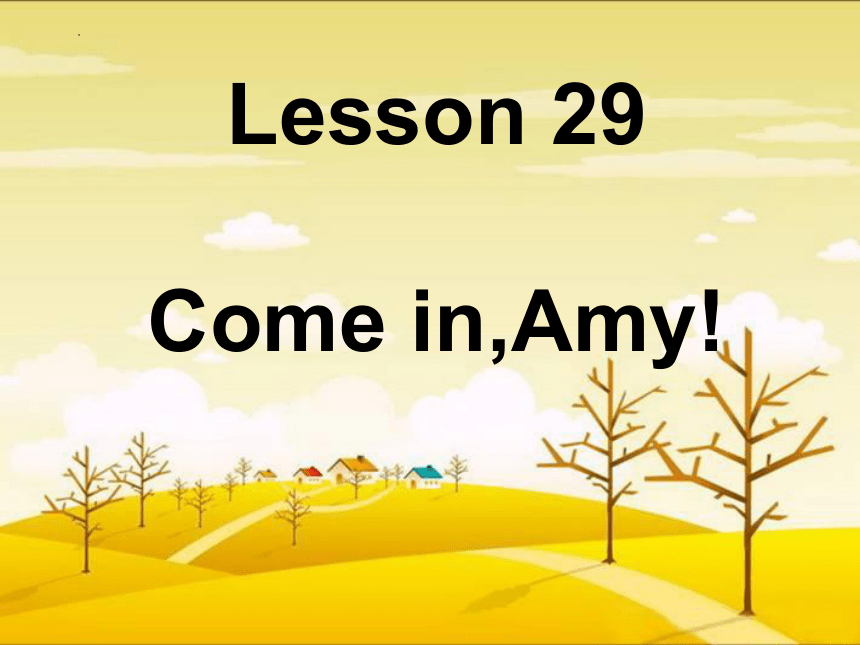 | |
| 格式 | pptx | ||
| 文件大小 | 19.5MB | ||
| 资源类型 | 教案 | ||
| 版本资源 | 新概念英语 | ||
| 科目 | 英语 | ||
| 更新时间 | 2024-04-06 13:52:13 | ||
图片预览


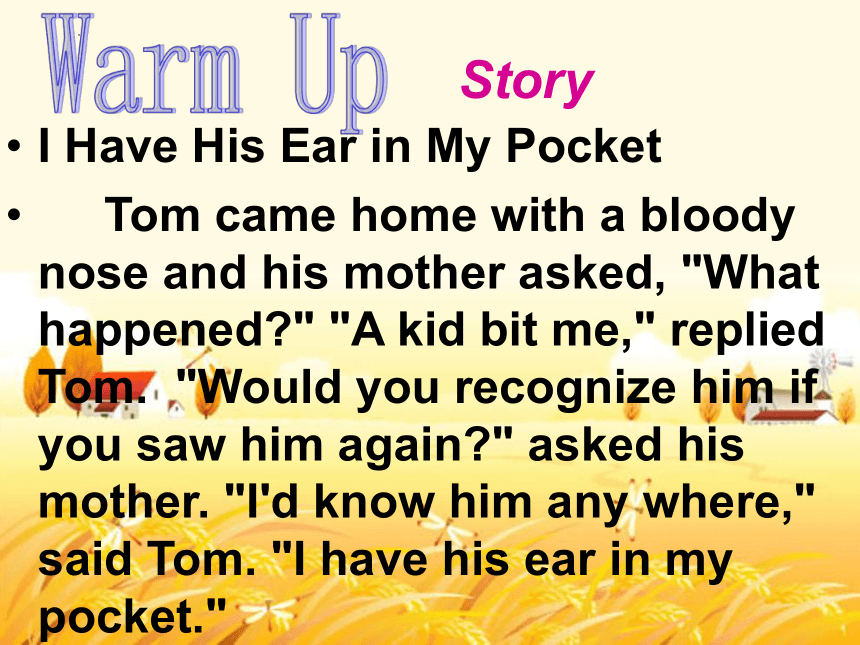
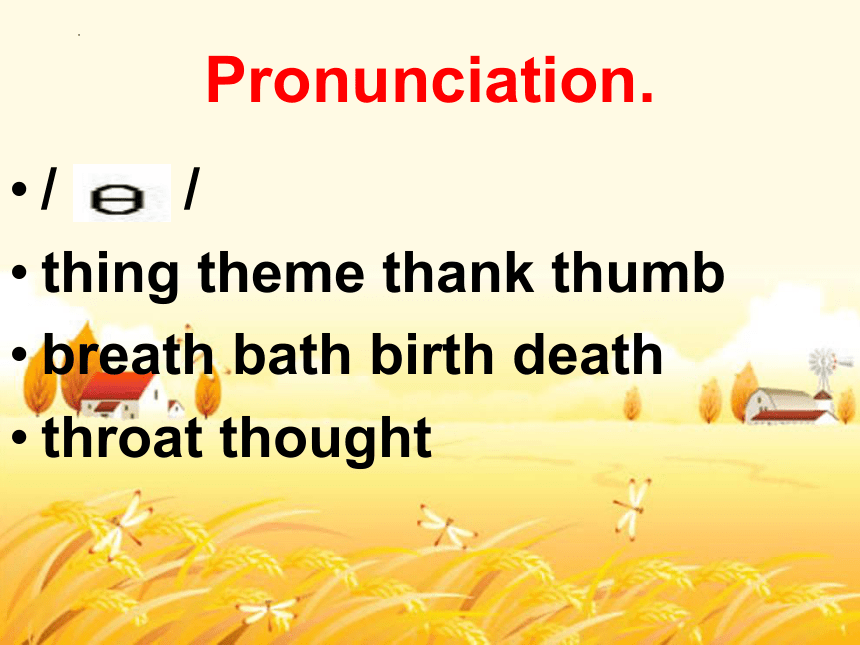
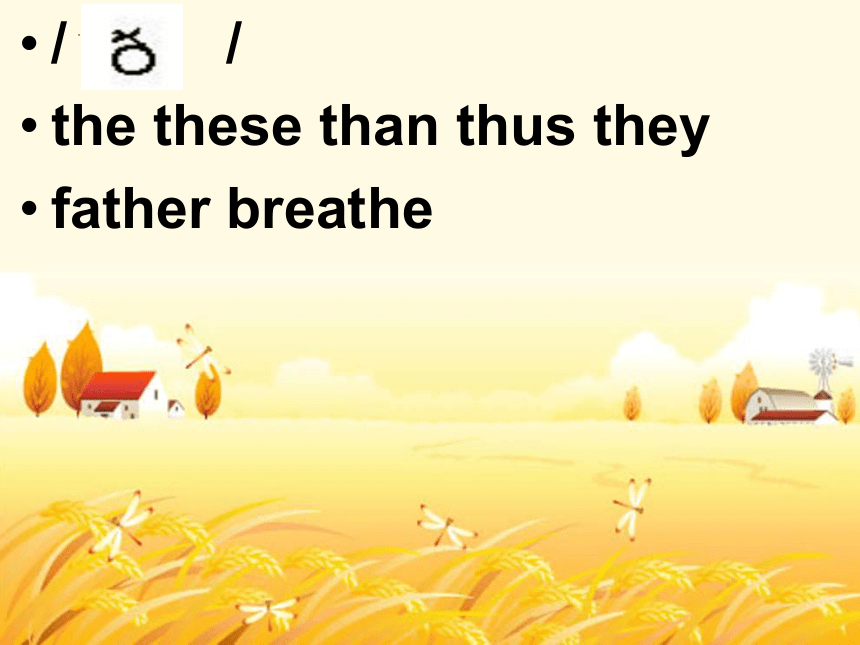
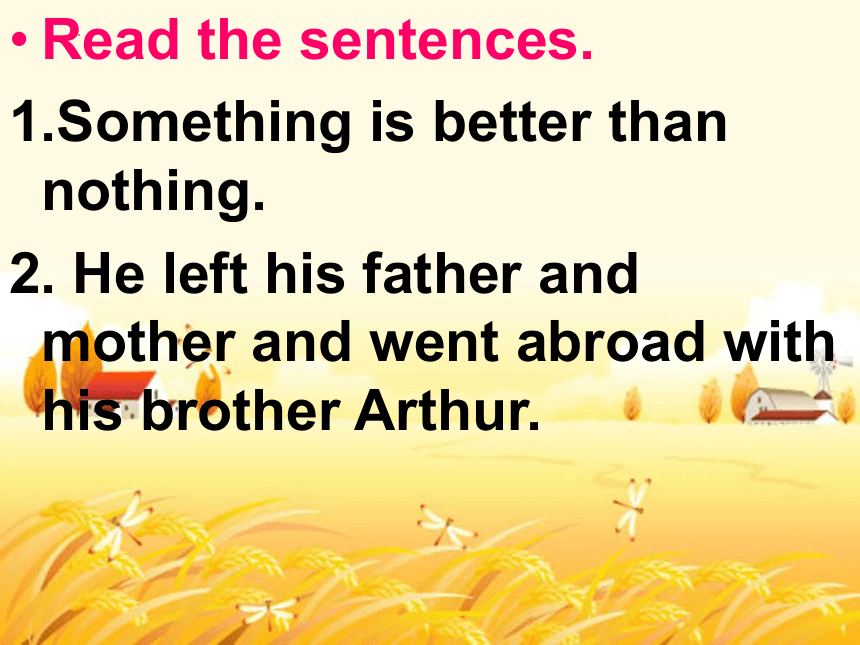
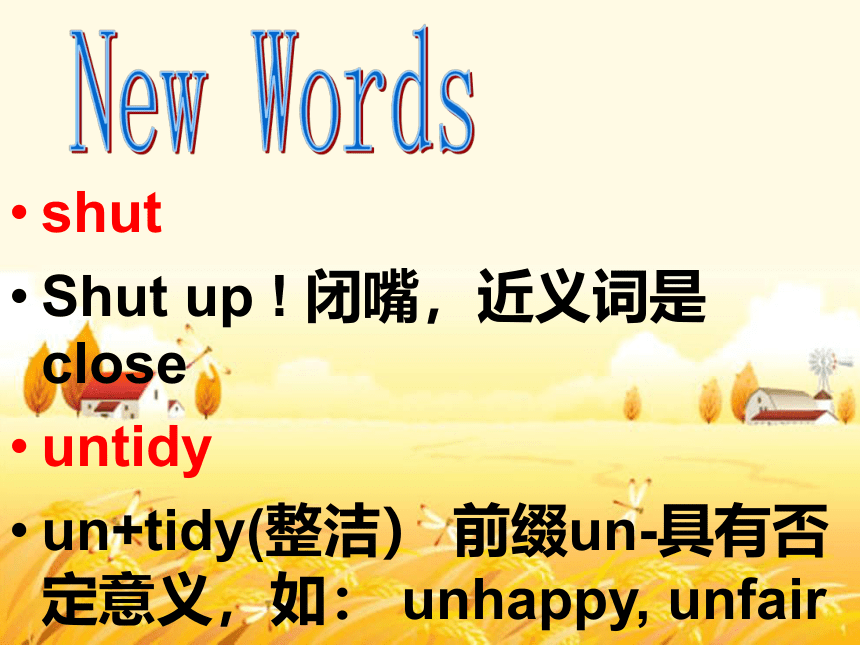
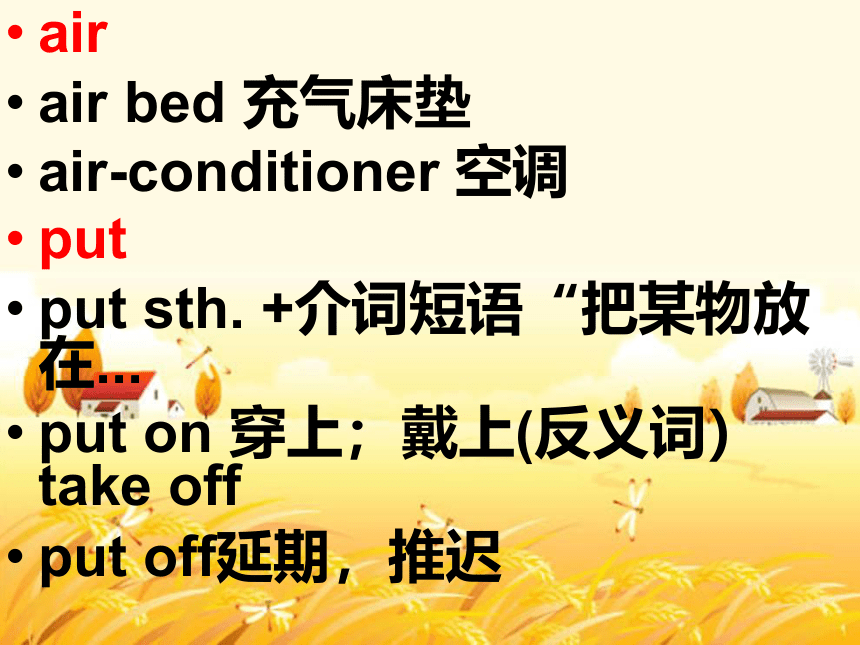
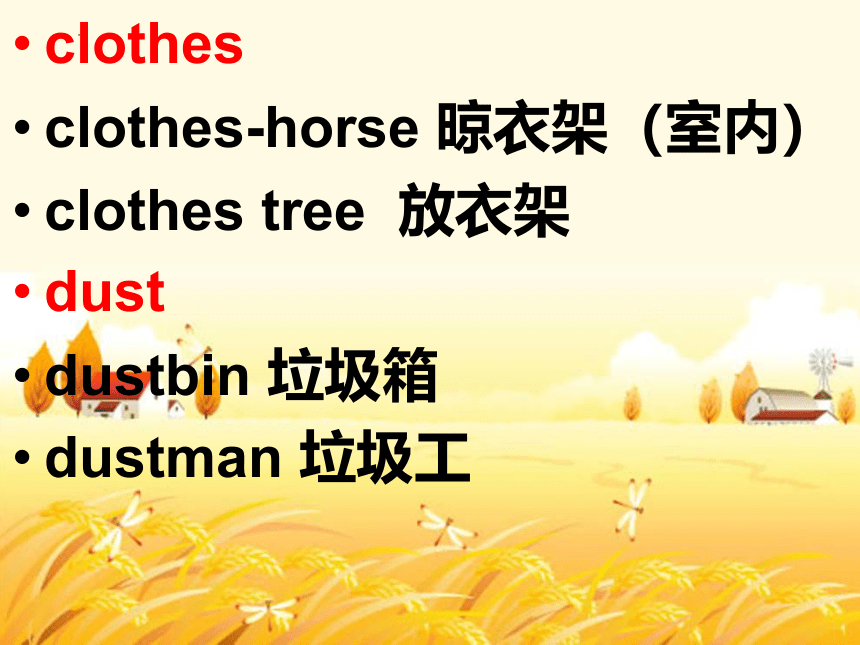
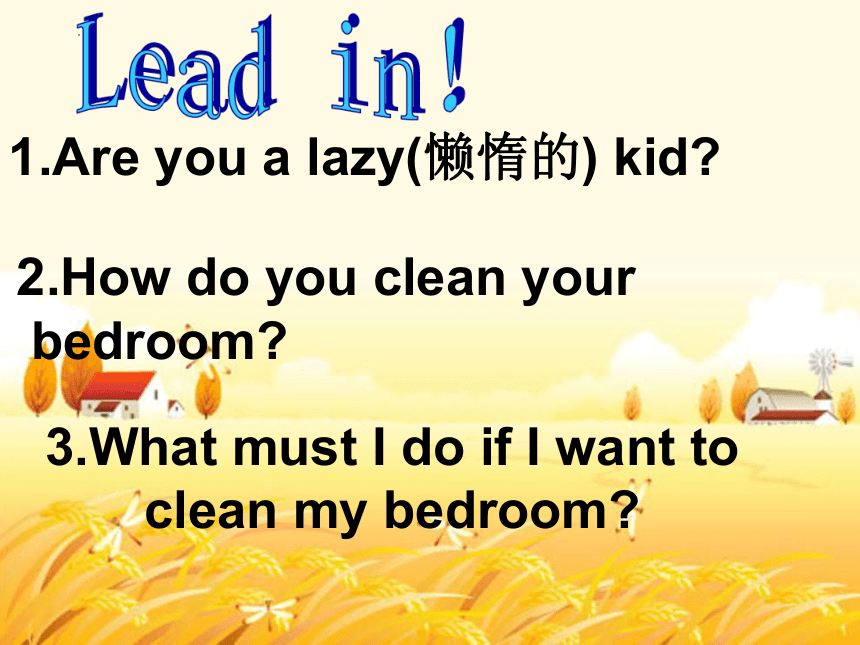
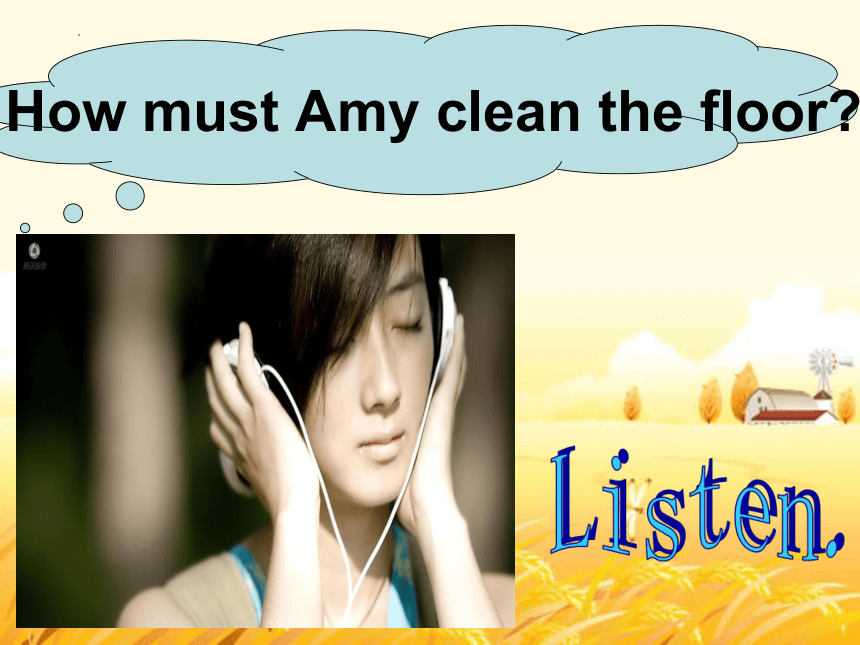
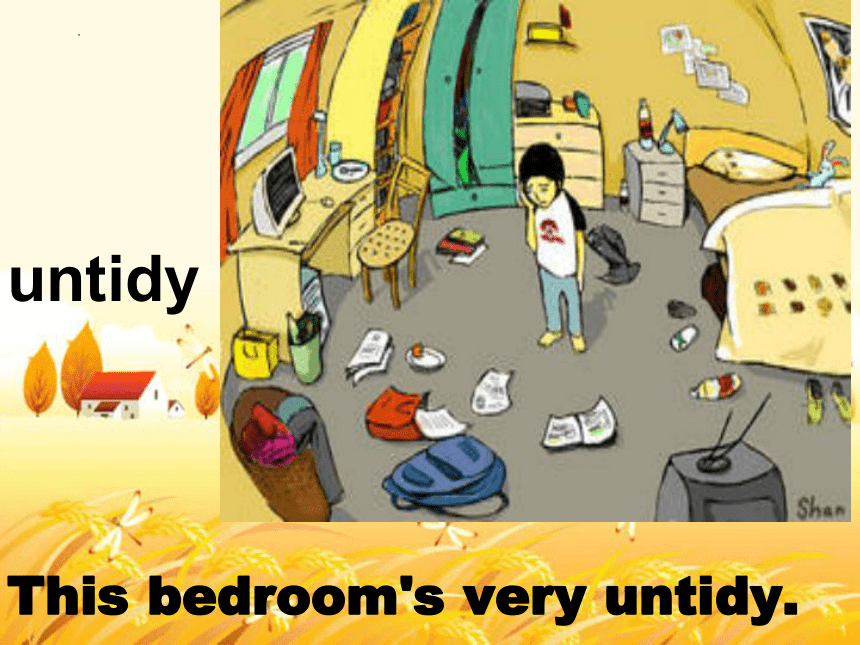
文档简介
(共42张PPT)
Lesson 29
Come in,Amy!
All things are difficult before they are easy.
万事开头难。
Every day English.
Story
I Have His Ear in My Pocket
Tom came home with a bloody nose and his mother asked, "What happened " "A kid bit me," replied Tom. "Would you recognize him if you saw him again " asked his mother. "I'd know him any where," said Tom. "I have his ear in my pocket."
Warm Up
Pronunciation.
/ /
thing theme thank thumb
breath bath birth death
throat thought
/ /
the these than thus they
father breathe
Read the sentences.
1.Something is better than nothing.
2. He left his father and mother and went abroad with his brother Arthur.
shut
Shut up ! 闭嘴,近义词是close
untidy
un+tidy(整洁) 前缀un-具有否定意义,如: unhappy, unfair
New Words
air
air bed 充气床垫
air-conditioner 空调
put
put sth. +介词短语“把某物放在...
put on 穿上;戴上(反义词)take off
put off延期,推迟
clothes
clothes-horse 晾衣架(室内)
clothes tree 放衣架
dust
dustbin 垃圾箱
dustman 垃圾工
1.Are you a lazy(懒惰的) kid
2.How do you clean your
bedroom
3.What must I do if I want to clean my bedroom
Lead in!
How must Amy clean the floor
Listen.
untidy
This bedroom's very untidy.
What must I do
Open the window and
air the room.
1
Put the clothes in the wardrobe.
2
make the bed
3
dust the dressing table
4
sweep the floor
5
What must I do
This bedroom's very untidy.
This bedroom's very clean.
How can we get a
clean bedroom
open the window
air the room
put the clothes in
the wardorbe
make the bed
dust the dressing table
sweep the floor
Summary
情态动词:
1 情态动词表示人的情感、状态或情绪变化的一种助动词,它本身具有实际意义。
2 情态动词不能单独做谓语,只能和后面的原形动词一起构成谓语。
3 情态动词没有人称和数格的变化。
4 含有情态动词的句子,否定句在它后面加not,一般疑问句把它提前。
must的用法:
1、must是情态动词。
2、表示必须,不得不做的事情。
同时也可以表示不可推卸的责 任。
3、must后面要加动词原型。
must do (sth)
What must I do
What (特殊疑问句)+ must(情态动词)+ I( 主语)+ do(谓语)?
Answer the questions.
1. Is Mrs.Jones in the living room
No, she isn't.
2.Is Mrs. Jones in the bedroom
Yes, she is.
3.Is Amy in the bedroom, too
Yes, she is.
4. Is the bedroom tidy?
No, it isn't.
5.Are these clothes in the wardrobe
No, they aren't.
6.Is the floor clean
No, it isn't.
Asking questions.
Lesson 30 What must I do
我应该做什么?
Open
Shut
your
{
handbag
book
Put on
Take off
your
{
clothes
shoes
Turn on
Turn off
the
{
light
refrigerator
Sweep the
{
floor
kitchen
Clean the
{
car
window
Dust the
{
dressing
table
table
Empty the
{
cup
bottle
Read this
{
newspaper
magazine
Sharpen these
pencils
Summary
1.用于表达命令、请求、 劝告、警告、禁止等的句子叫做祈使句。
2.祈使句最常用于表达命令。
祈使句:
如:Open the book;Go out;Come in
Thank you !
Goodbye!
Lesson 29
Come in,Amy!
All things are difficult before they are easy.
万事开头难。
Every day English.
Story
I Have His Ear in My Pocket
Tom came home with a bloody nose and his mother asked, "What happened " "A kid bit me," replied Tom. "Would you recognize him if you saw him again " asked his mother. "I'd know him any where," said Tom. "I have his ear in my pocket."
Warm Up
Pronunciation.
/ /
thing theme thank thumb
breath bath birth death
throat thought
/ /
the these than thus they
father breathe
Read the sentences.
1.Something is better than nothing.
2. He left his father and mother and went abroad with his brother Arthur.
shut
Shut up ! 闭嘴,近义词是close
untidy
un+tidy(整洁) 前缀un-具有否定意义,如: unhappy, unfair
New Words
air
air bed 充气床垫
air-conditioner 空调
put
put sth. +介词短语“把某物放在...
put on 穿上;戴上(反义词)take off
put off延期,推迟
clothes
clothes-horse 晾衣架(室内)
clothes tree 放衣架
dust
dustbin 垃圾箱
dustman 垃圾工
1.Are you a lazy(懒惰的) kid
2.How do you clean your
bedroom
3.What must I do if I want to clean my bedroom
Lead in!
How must Amy clean the floor
Listen.
untidy
This bedroom's very untidy.
What must I do
Open the window and
air the room.
1
Put the clothes in the wardrobe.
2
make the bed
3
dust the dressing table
4
sweep the floor
5
What must I do
This bedroom's very untidy.
This bedroom's very clean.
How can we get a
clean bedroom
open the window
air the room
put the clothes in
the wardorbe
make the bed
dust the dressing table
sweep the floor
Summary
情态动词:
1 情态动词表示人的情感、状态或情绪变化的一种助动词,它本身具有实际意义。
2 情态动词不能单独做谓语,只能和后面的原形动词一起构成谓语。
3 情态动词没有人称和数格的变化。
4 含有情态动词的句子,否定句在它后面加not,一般疑问句把它提前。
must的用法:
1、must是情态动词。
2、表示必须,不得不做的事情。
同时也可以表示不可推卸的责 任。
3、must后面要加动词原型。
must do (sth)
What must I do
What (特殊疑问句)+ must(情态动词)+ I( 主语)+ do(谓语)?
Answer the questions.
1. Is Mrs.Jones in the living room
No, she isn't.
2.Is Mrs. Jones in the bedroom
Yes, she is.
3.Is Amy in the bedroom, too
Yes, she is.
4. Is the bedroom tidy?
No, it isn't.
5.Are these clothes in the wardrobe
No, they aren't.
6.Is the floor clean
No, it isn't.
Asking questions.
Lesson 30 What must I do
我应该做什么?
Open
Shut
your
{
handbag
book
Put on
Take off
your
{
clothes
shoes
Turn on
Turn off
the
{
light
refrigerator
Sweep the
{
floor
kitchen
Clean the
{
car
window
Dust the
{
dressing
table
table
Empty the
{
cup
bottle
Read this
{
newspaper
magazine
Sharpen these
pencils
Summary
1.用于表达命令、请求、 劝告、警告、禁止等的句子叫做祈使句。
2.祈使句最常用于表达命令。
祈使句:
如:Open the book;Go out;Come in
Thank you !
Goodbye!
同课章节目录
